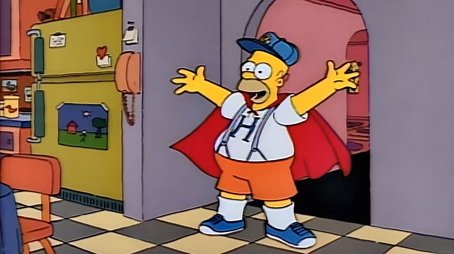
Sorry, we have not watched this yet.

Homer fires up the crowd at a Springfield Isotopes baseball game and is chosen to be the team's new mascot. He immediately becomes a popular attraction and the Isotopes start a winning streak. As a result, Homer is promoted to a team in Capital City, the Capital City Capitals.
Sorry, we have not watched this yet.